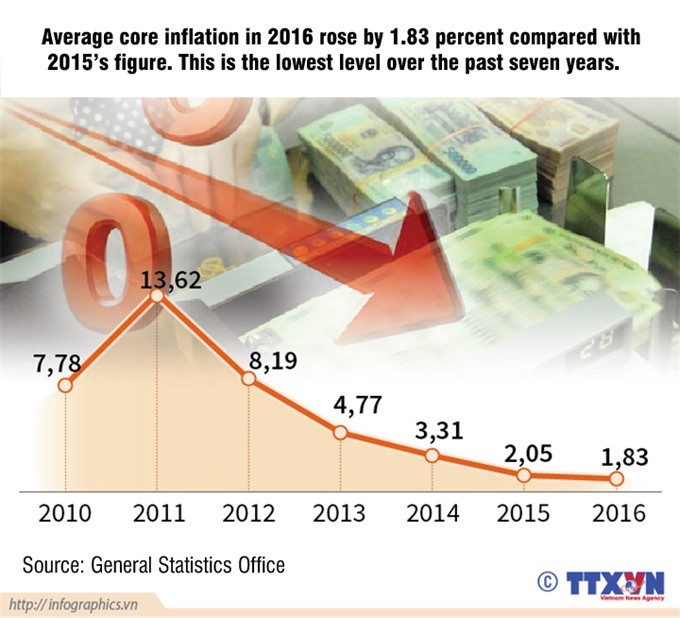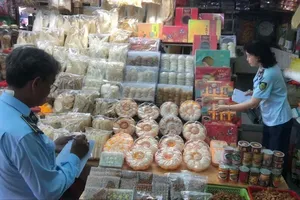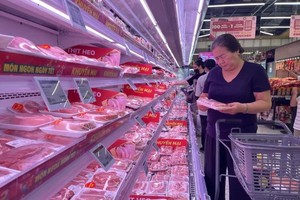The Department of Price Management will seek to improve market analysis and forecast in oder to implement appropriate policies and control inflation at 4 percent, as set by the National Assembly for 2017, Deputy Minister of Finance Tran Van Hieu said.

At a conference on Thursday, Mr. Hieu asked the price watchdog to tighten price management to prevent dramatic price hikes ahead of the Tet (Lunar New Year) holiday, especially in areas recently hit by natural disasters.
Although the macro-economy is expected to remain stable in 2017, potential exists for a rise in inflation, the department said. For example, the adjustment of healthcare and education fees in late 2016 and in 2017 are expected to create inflationary pressure.
The department said that power and fuel costs would also be under pressure, coupled with unfavourable weather conditions which would affect the supply of goods and services, especially food and food stuffs.
The price adjustments of products and services, which have significant effects on the economy, would be evaluated carefully to minimise their impacts and focus would be placed on market data collection and analysis, the department said.
Inflation under control
Ms. Nguyen Thi Thuy Nga, the department’s Deputy Director, said the department implemented flexible price management policies in coordination with other ministries to control inflation in 2016 at below 5 per cent as set by the National Assembly. The inflation rate had in fact been kept relatively low at 4.74 percent in 2016.
This was due to the combined effort of the Government and financial economic administrative agencies, Mr. Nguyen Bich Lam, director general of the General Statistics Office of Vietnam (GSO), said.
The low 2016 inflation was achieved through careful adjustment of prices by the Government according to market indicators, despite price hikes of several essential goods, he said at GSO’s year-end conference on 2016 economic indices in late December.
The reason for the CPI hike in 2016 was determined to be the Government’s upward price adjustment of healthcare services, higher demand for food and construction before the Lunar New Year, and El Niño’s effect on crops resulting in a deficit in rice supply and pushing the rice price higher.
December 2016 also saw the consumer price index (CPI) rise slightly by 0.73 percent compared with November 2016. The CPI saw a light decrease in December in Hanoi but rose 0.52 percent in HCM City.
Annual core inflation increased 1.83 percent compared with 2015.
The rise in core inflation from January to December 2016 compared with the same period in 2015 showed narrow amplitude, fluctuating from 1.64 to 1.88 percent, a result of a steady monetary policy being put into practice, helping the country’s macroeconomic stability and keeping inflation under control.
The Ministry of Industry and Trade worked together with the State Bank of Vietnam in 2016 to organise a steady supply of goods to insulate the market from sudden price hikes and to adjust the exchange rate between the VND and US dollar to suit the macroeconomic scene.
The year 2017 will see a change in the inflation calculation method by using the average annual CPI instead of the change in CPI between December of the current year and the previous one, Ms. Le Thi Minh Thuy, director of the GSO’s Trade and Service Statistics Department, said.
Mr. Lam also expressed the GSO’s concern through a petition to the Government proposing several solutions to keep inflation under control in 2017, with the target of a four per cent CPI rise as indicated by the National Assembly.
As such, price adjustment methods must be employed for healthcare services, electricity, water and interest rates, and a close watch must be kept on global oil prices to prevent the domestic price from shooting up and affecting the 2017 CPI.
























